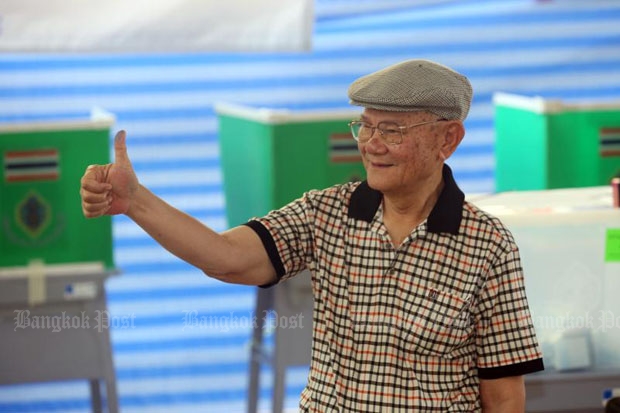
Political reform assemblymen have proposed that the election law allow the National Council for Peace and Order (NCPO) to have a significant role in arranging the election expected next year.
The proposal was one of several that the political reform committee of the National Reform Steering Assembly submitted on Wednesday to the Constitution Drafting Committee (CDC) which will draft an election bill.
In a 27-page report, the committee recommended a provisional clause that would allow the NCPO to closely cooperate with the Election Commission (EC) on organising and regulating the election. The idea was meant to prevent criticism that the coup in 2014 was a failure.
The committee also proposed the EC assign the Interior Ministry to organise the election of MPs and local councillors.
It proposed provincial election committees be dissolved and the EC order soldiers, police, administrative officials of the Interior Ministry and other government officials to support it during the election.
It also recommended that people be given the right to complain against electoral fraud and be rewarded at least 100,000 baht if the fraud is finally proved.
The committee called for harsh punishment, including a lifelong electoral ban, for political party executives who fail to prevent electoral fraud by members.
Wanchai Sornsiri, a member of the National Reform Steering Assembly, said on Thursday there should be strict measures to prevent electoral fraud by political party members in order to ensure fair elections.
"If party members cheat on elections and their party leaders or executives do not take action, the party leaders must be held responsible. Punishment can be a lifelong ban on electoral rights and they will be considered as having committed criminal offences too," he said.
"If the fraud results in a fresh election, they must pay for the new election organisation."
Those who commit electoral fraud would be banned from running for election for life and could be jailed for up to a decade without any suspension. The statute of limitations would last 20 years to discourage people from wrongdoing, Mr Wanchai said.
The political reform committee also proposed that MP candidates and MPs would be prohibited from giving financial aid to weddings, ordinations and funerals within their constituencies to prevent indirect vote-buying, he said.